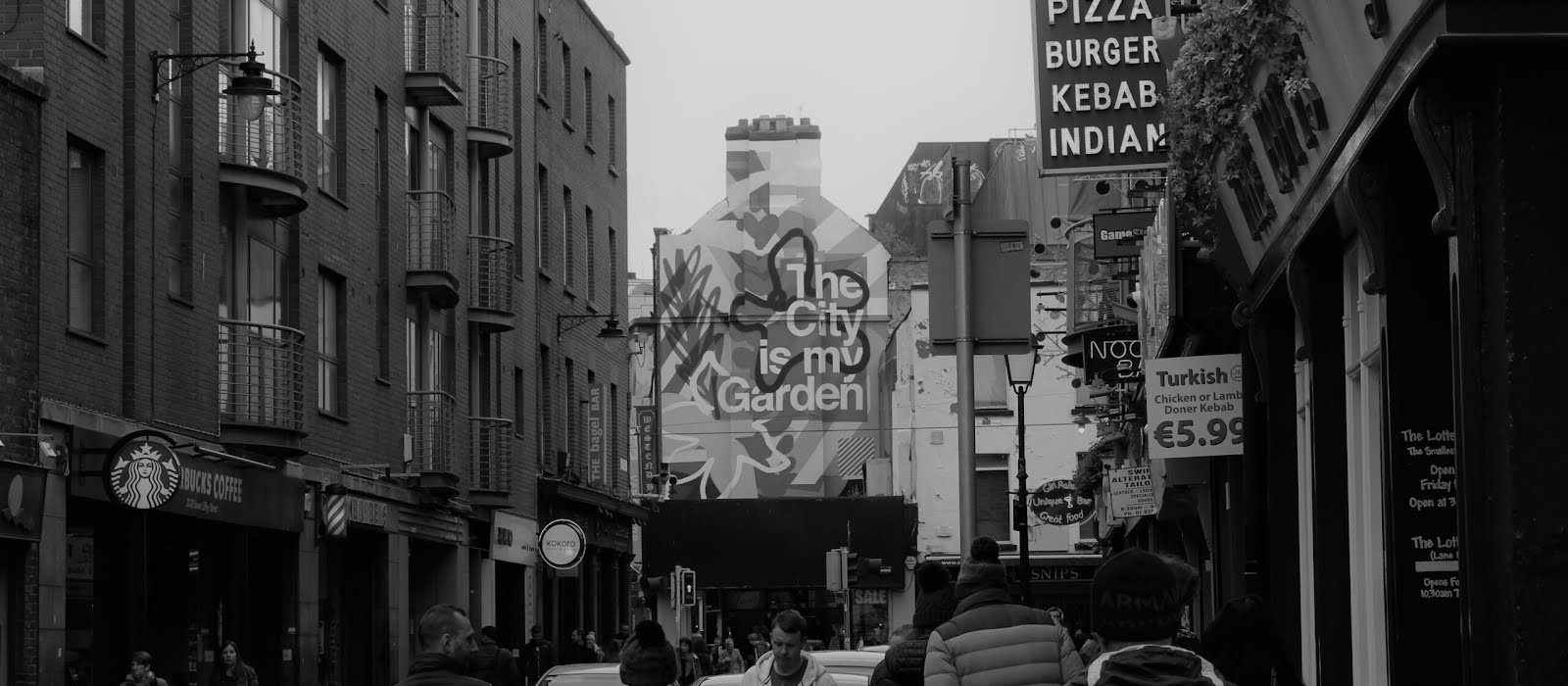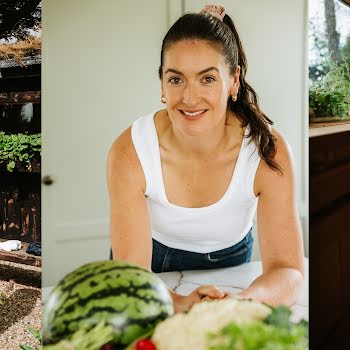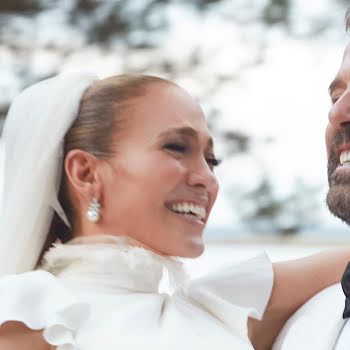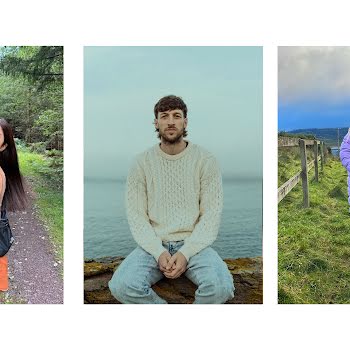
‘We’ve hollowed out the city for tourist business. It doesn’t cater to locals.’
As a business owner in Dublin city centre, Andrea Horan is well-versed in the problems the capital is facing at the moment. From communities being eroded to make way for hotels to a distinct lack of public facilities, affordable housing and creative hubs, the city’s issues are grave and numerous. But, there is hope. In Andrea’s words, “We deserve a city that hums; a city that bustles with life and activity and is open to all.”
Dublin is the best place in the world. FACT.
However, recently there’s been a lot of Dublin bashing alongside the closures of city centre-based hospitality businesses.
Warning signals have been sounded for years by a cohort of people who love the city but could see the issues that were forming and how they were going to impact the capital if they continued to remain unaddressed.
The arrival of Covid-19 threw the gates wide open and exposed the systemic issues that Dublin was dealing with. Efforts to address the issues have been superficial and topline — the City Recovery Task Force set up by Dublin City Council’s CEO Owen Keegan post-Covid came with a memo confirming that there would be no “specific financial allocation” assigned to the task force. The current Government Task Force for Dublin City Centre is due to announce its recommendations soon, but again, no budget has been assigned to the project. Hopefully, the task force tackles the root of the problems presenting in the city and simply adding more guards isn’t the outcome of the (pre-election?) process. We’ll cross our fingers and hope for the best.
Adding more guards and closing down lanes does not address the issues that Dublin City has been, and will continue, facing. All of the issues that affect the city are underpinned by the financialisation of housing and speculation of land in the city (buying vacant land and holding it until development interest increases). Until that is tackled, we’ll continue to see issues in Dublin. That’s a choice being made by politicians so think about who you’re voting for when the next election is called.
In the meantime, here are just a few things we can do that would instantly improve the city:
Ask who is the city for
It is time to collectively acknowledge the fact that we have hollowed out the city to make way for tourist business and that it is no longer a place that caters to the people who live there year-round.
Communities have been eroded to make way for white-label hotels, luxury student accommodation for foreign students and luxury apartments. Simply look at The Liberties – promises of outdoor market spaces and amenities for locals in places like Newmarket Square have been shelved, the burnt-out community centre remains closed and the area is still without a sports pitch for the 8,500 children.
Increase nighttime activity
A number of nightclubs were bulldozed to make way for many of the hotels, aparthotels and student accommodation that now take their place. This has had a drastic impact on who goes out in town at night now. The argument that young people are drinking less and there isn’t a market for nighttime entertainment is turned on its head when you see the crowds at electronic music dance tents at festivals and the sold-out outdoor gigs that made up most of the summer. The fact is the infrastructure is no longer there. The cost of living (especially in luxury apartments) has driven young people out of the city and the venues that are busy are catering to tourists. One need only look at all the pastiches of Irish venues opening up in the city.
When you create the market by eradicating anything unique and culturally relevant to the people who live in Dublin in favour of hotels, you have to take responsibility for the market you’ve created... or the one you’ve killed.
The Intoxicating Liquor Bill 2024 has been pushed aside and needs to be reignited as soon as possible. Museums and galleries should open outside of traditional office hours.
People being out and about at night also provides its own safety measure – remove people, as we saw during Covid, and the safety of the city decreases. With no late-night activity, the city becomes deserted and its safety is encroached upon.
Street level activity
Another layer to the self-policing of the city’s streets is the eradication of on-the-ground social and commercial spaces. These hubs have been eliminated to make way for the glass-fronted, empty spaces that make up huge ego-fuelled receptions for corporations or the spaces carved out for socialising in co-living and aparthotels. More often than not, these spaces are empty and contribute nothing to the cityscape and safety of the public realm.
Provide amenities that are meant to be used
One of the things Covid did was throw eyes on the fact that the city is deficient in amenities that aren’t provided by commercial businesses. From toilets to bins, there was a huge issue with their lack but also, a huge issue with how we think about how these basic amenities in the city should be used. A quote from a Dublin City Council representative at the time said they “…feel that if we provide toilets and bins at these locations it will only drive more footfall and create more of an issue from a public health perspective”. This feeling carries over to issues such as the removal of benches that have been deemed to attract ‘anti-social’ behaviour outside Powerscourt and in Portobello, to the erection of fencing along the canal. Instead of providing, managing and upkeeping facilities in the city, if they are not used in a particular way, they are simply removed.
We need to realise that we all have equal ownership of the city and we deserve to be provided with not just the basics. We deserve a city that hums; a city that bustles with life and activity and is open to all.
Find value in beauty
As we have become so starved of basic amenities, when we do get anything, we are expected to be appreciative of it, no matter how badly it fits into the surrounding public realm. One example of this is the recent addition of water fountains in the city – absolutely required, but what was notable was their design, or lack thereof. We used to be proud of the workmanship of the elements that made up our city (old street light designs, for example). Lowest common denominator design is not something that should be aspired to, or otherwise, we don’t get the facility. We deserve better.
Prioritise creative spaces
When the city is centred on building luxury accommodation and cheap hotels, the goal is clearly to get the best return on investment for the developers, rather than creating something that makes the city sing. For a city to function properly, there has to be space for creatives and artists to live and work. The current development of the city has driven the people who literally create the energy and what’s happening in the city away; they can no longer afford to be there (a one-bedroom apartment to rent in recently-built Newmarket Yards in the Liberties is €2,400 a month) and a once off €750 tax break—recently proposed by Fine Gael Minister for Enterprise Peter Burke—to keep young people here is not going to cut the mustard.
The people propping up the hospitality industry—which is still recovering from Covid, dealing with warehouse debts, increased VAT rates and increased wage costs—have flocked to the more affordable suburbs, to other counties or have emigrated to countries offering a better quality of life.
Dublin is a magical place and has so much going for it. It’s time for everyone to realise their role in keeping the city a wonderful place to be. Making choices to support local businesses over chains, visiting the city as much as you can and thinking of ways to make it better rather than just giving out about it are just a few suggestions. It is, after all, your city.
Andrea Horan is the founder of Dublin nail bar Tropical Popical, The Hunreal Issues, co-founder of No More Hotels, and co-presenter of Don’t Stop Repealin’, United Ireland and a new upcoming podcast with Una Mullally.
Photo by Sophie Popplewell on Unsplash



















